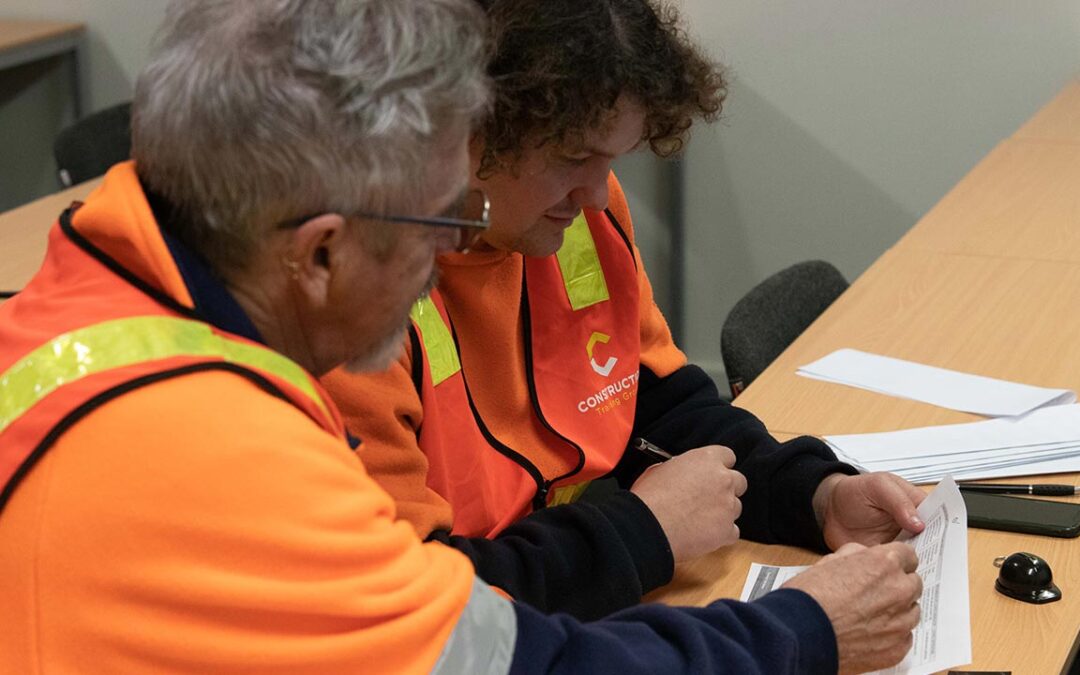Your Guide to the White Card Course
Introduction to the White Card Course
The White Card Course, also known as the Construction Induction Training Course, is an essential requirement for anyone wishing to work on construction sites in Australia. This course is designed to provide participants with the knowledge and skills needed to work safely and effectively in the construction industry. With safety being a paramount concern in this sector, understanding the principles taught in this course is vital for all workers. Your Guide to the White Card Course
The White Card certification is recognized nationally and is required by law in Australia for all construction workers. This article will explore what the White Card Course entails, the benefits of obtaining it, the course content, how to enroll, and frequently asked questions.
What Is the White Card?
The White Card is a certification that demonstrates a worker’s understanding of workplace health and safety in the construction environment. It signifies that the holder has completed the necessary training to work safely on construction sites and is aware of their responsibilities under the Work Health and Safety (WHS) legislation.
This card is often a prerequisite for various roles within the construction industry, including tradespeople, laborers, site managers, and supervisors. Without a valid White Card, individuals cannot legally work on construction sites, making it a critical qualification for anyone entering this field.
Benefits of the White Card Course
1. Legal Requirement
One of the primary benefits of obtaining a White Card is that it is a legal requirement for anyone working in construction. Employers are obligated to ensure that their workers hold a valid White Card before allowing them on-site. By completing the course, individuals comply with legal obligations and avoid penalties associated with non-compliance.
2. Safety Awareness
The course equips participants with vital knowledge about workplace safety, including identifying hazards, understanding risk assessment, and implementing safety procedures. This awareness contributes to creating a safer work environment, reducing the likelihood of accidents and injuries.
3. Improved Employment Opportunities
Having a White Card enhances employability in the construction industry. Many employers prefer or require candidates to have this certification, making it a valuable asset when applying for jobs. Additionally, some roles may demand additional training, but having a White Card is often the first step in building a successful career in construction.
4. Enhanced Skills and Knowledge
The White Card Course provides participants with essential skills and knowledge that can be applied in various roles. This includes understanding safety protocols, emergency procedures, and the correct use of personal protective equipment (PPE). The knowledge gained from the course can lead to better job performance and increased confidence on-site.
Course Content Overview
The White Card Course covers a range of topics to ensure participants gain a comprehensive understanding of workplace health and safety in construction. Below are the key topics typically included in the training:
1. Understanding Work Health and Safety Legislation
Participants learn about the relevant WHS legislation that governs construction sites. This includes the duties of employers and workers, rights and responsibilities, and the importance of complying with legal requirements.

Your Guide to the White Card Course
2. Identifying Hazards and Assessing Risks
A significant focus of the course is on identifying potential hazards in the workplace, including physical, chemical, and environmental risks. Participants are taught how to assess these risks and implement control measures to minimize them.
3. Safe Work Practices
The course emphasizes the importance of safe work practices, including proper handling of equipment, use of PPE, and adherence to safety protocols. Participants learn about best practices for working at heights, operating machinery, and working in confined spaces.
4. Emergency Procedures
Knowing how to respond in an emergency is crucial for all workers. The course covers emergency procedures, including evacuation plans, reporting incidents, and administering basic first aid. Understanding these procedures can save lives in critical situations.
5. Reporting and Communication
Effective communication is essential for maintaining a safe workplace. Participants learn how to report hazards, incidents, and unsafe practices. This training fosters a culture of safety where workers feel empowered to communicate concerns without fear of retaliation.
How to Enroll in the White Card Course
Enrolling in the White Card Course is a straightforward process. Here are the steps to follow:
1. Choose a Registered Training Organization (RTO)
The first step is to select a registered training organization (RTO) that offers the White Card Course. It is crucial to ensure that the RTO is recognized by the relevant authorities to issue valid White Cards.
2. Check Course Availability
Once you have identified an RTO, check their course schedule and availability. Many organizations offer both face-to-face and online training options, providing flexibility to suit your needs.
3. Complete the Enrollment Process
After choosing an RTO, complete the enrollment process. This typically involves filling out an application form and paying the course fee. Fees can vary depending on the provider, so it is advisable to compare costs.
4. Attend the Course
Upon enrollment, attend the course sessions as scheduled. Ensure you engage with the material and participate in discussions and practical exercises. This interaction enhances your learning experience.
5. Obtain Your White Card
Upon successful completion of the course and assessment, you will receive your White Card. Keep this card safe, as you will need to present it to employers when applying for jobs in construction.
Frequently Asked Questions (FAQs)
1. How long is the White Card valid?
The White Card does not expire, but it is advisable to stay updated on WHS regulations and practices. Some employers may require periodic refresher courses to ensure workers are aware of current safety protocols.
2. Can I complete the White Card Course online?
Yes, many RTOs offer online options for the White Card Course, allowing you to complete the training at your convenience. Ensure that the online course includes interactive components and assessments to meet the required standards.
3. Is the White Card recognized in all Australian states and territories?
Yes, the White Card is recognized nationally across all states and territories in Australia. Once you obtain your White Card, it is valid for use in any state or territory.
4. What if I lose my White Card?
If you lose your White Card, contact the RTO that issued it. They can guide you through the process of obtaining a replacement.
Conclusion
The White Card Course is a vital training program for anyone seeking to work in the construction industry in Australia. By obtaining this certification, individuals demonstrate their commitment to workplace safety and compliance with legal requirements. With the knowledge gained from the course, workers can contribute to a safer work environment and enhance their employment opportunities within the construction sector.

